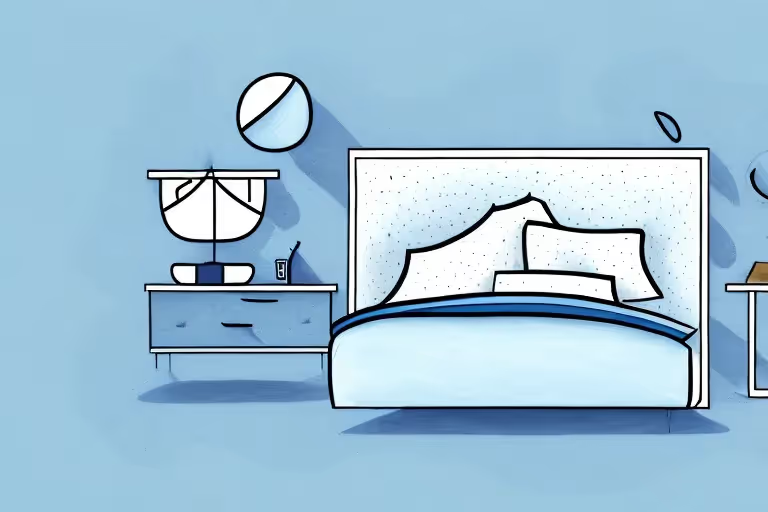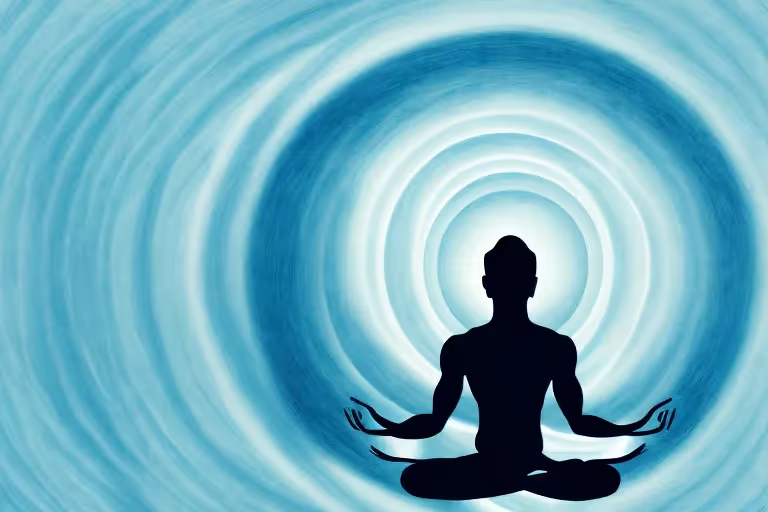If you are taking Zoloft, commonly known as sertraline, you may have experienced night sweats. These episodes of excessive sweating in the middle of the night can be perplexing and disruptive to your sleep. In this article, we will delve into the causes and management strategies for Zoloft-induced night sweats, equipping you with the knowledge to navigate this common side effect.
What is Zoloft?
Zoloft is a widely prescribed medication that belongs to a class of drugs called selective serotonin reuptake inhibitors (SSRIs). It is primarily used to treat depression, panic disorder, social anxiety disorder, and post-traumatic stress disorder (PTSD). By regulating the levels of serotonin in the brain, it helps alleviate symptoms of these conditions and improve overall well-being.
The Role of Zoloft in Treating Depression
When someone is battling depression, their brain chemistry can be imbalanced, particularly when it comes to serotonin, a neurotransmitter responsible for regulating mood. Zoloft works by inhibiting the reabsorption of serotonin, allowing it to stay in the brain for longer. This increased serotonin availability promotes better communication between brain cells, effectively lifting the cloud of depression.
Depression is a complex and multifaceted condition that affects millions of people worldwide. It can manifest in various ways, such as persistent sadness, loss of interest in activities, changes in appetite and sleep patterns, and difficulty concentrating. Zoloft, with its targeted mechanism of action, offers hope to those struggling with depression.
Furthermore, Zoloft's effectiveness in treating depression has been extensively studied and documented. Clinical trials have shown that it is significantly more effective than a placebo in reducing depressive symptoms. It is important to note that Zoloft is not a cure for depression but rather a tool that can help individuals manage their symptoms and regain control of their lives.
Common Side Effects of Zoloft
Like any medication, Zoloft comes with its share of potential side effects. These can vary from person to person, but some commonly reported ones include nausea, diarrhea, dizziness, and weight changes. Another side effect that some individuals experience, especially during the early stages of treatment, is night sweats.
It is crucial to understand that not everyone experiences these side effects, and they are often temporary and mild. The benefits of taking Zoloft, such as improved mood and quality of life, generally outweigh the potential drawbacks. However, it is essential to discuss any concerns or side effects with a healthcare professional to ensure the best course of action.
Moreover, it is worth mentioning that Zoloft is not addictive and does not lead to substance abuse. Unlike some other medications used to manage mental health conditions, Zoloft does not produce a euphoric or sedative effect. It is a safe and well-tolerated medication when taken as prescribed.
In conclusion, Zoloft is a widely prescribed medication that plays a crucial role in treating various mental health conditions. By targeting serotonin levels in the brain, it helps alleviate symptoms of depression, panic disorder, social anxiety disorder, and PTSD. While it may have potential side effects, they are generally mild and temporary. Zoloft offers hope and relief to individuals struggling with these conditions, enabling them to lead fulfilling and productive lives.
Exploring the Phenomenon of Night Sweats
Night sweats, also known as sleep hyperhidrosis, refer to episodes of excessive sweating during sleep. While they can occur independently, they are often a symptom of an underlying medical condition or a side effect of certain medications, including Zoloft.
When night sweats occur, they can leave individuals feeling drenched and uncomfortable. The sensation of waking up in a pool of sweat can be disconcerting and may lead to concerns about one's health. To better understand this phenomenon, it is important to explore the causes and the impact it has on sleep quality.
Causes of Night Sweats
Night sweats can arise from various factors such as hormonal imbalances, infections, anxiety, and certain medications. In the case of Zoloft, it is believed to interfere with the body's thermoregulation process, leading to episodes of night sweats. However, the exact mechanisms behind this phenomenon are still not fully understood and require further research.
Hormonal imbalances, such as those experienced during menopause or as a result of certain medical conditions, can contribute to night sweats. These imbalances can disrupt the body's natural temperature regulation, causing excessive sweating during sleep. Infections, particularly those accompanied by fever, can also trigger night sweats as the body attempts to cool down.
Anxiety and stress can also play a role in night sweats. When the body is under stress, it releases stress hormones that can impact the body's temperature regulation. This can result in night sweats as the body tries to cool down during sleep.
Night Sweats and Their Impact on Sleep Quality
Experiencing night sweats can be incredibly uncomfortable and disruptive to your sleep. Wet and drenched beddings can cause interrupted sleep patterns, leading to daytime fatigue, irritability, and difficulty concentrating. It is essential to address this issue promptly to restore restful sleep and maintain overall well-being.
When night sweats occur, individuals may find themselves waking up multiple times throughout the night to change clothes or beddings. This constant disruption can prevent them from entering deep, restorative sleep stages, leading to feelings of fatigue and grogginess the next day. The lack of quality sleep can also impact cognitive function, making it harder to concentrate and perform daily tasks.
Furthermore, night sweats can have a significant psychological impact on individuals. The fear of waking up drenched in sweat can create anxiety around bedtime, leading to difficulty falling asleep or staying asleep. This can create a vicious cycle where the anxiety about night sweats perpetuates the problem, further exacerbating sleep disturbances.
In conclusion, night sweats are a common phenomenon that can be caused by various factors. Understanding the causes and the impact they have on sleep quality is crucial in finding effective solutions. Whether it is addressing hormonal imbalances, managing anxiety, or adjusting medications, taking steps to alleviate night sweats can lead to improved sleep and overall well-being.
Zoloft and Night Sweats: The Connection
While the relationship between Zoloft and night sweats is not yet fully understood, many individuals report sweating episodes during their Zoloft treatment. It is important to remember that not everyone who takes Zoloft will experience night sweats, and the severity and frequency can vary from person to person.
Why Zoloft May Cause Night Sweats
The exact mechanism by which Zoloft triggers night sweats remains unclear. However, it is believed that the medication affects the body's temperature regulation, leading to an increase in sweating during sleep. The specific way in which Zoloft interacts with the body's systems is still under investigation, and researchers continue to explore this phenomenon.
Frequency of Night Sweats Among Zoloft Users
A study conducted among Zoloft users found that nighttime sweating occurred in approximately 8% of participants. These episodes were generally reported during the early stages of treatment and tended to diminish over time. However, it is important to discuss your experiences with your healthcare provider to determine the best course of action.
Fall Asleep Faster and Stay Asleep Longer: Meet Aura, the #1 App for Sleep Sounds, Sleep Stories, Sleep Meditations, and More. Try it Free!
Managing Zoloft-Induced Night Sweats
If you are experiencing night sweats while taking Zoloft, there are several strategies you can employ to manage this side effect effectively. Remember to consult your healthcare provider before making any changes to your treatment plan.
Lifestyle Changes to Reduce Night Sweats
Making simple adjustments to your daily routine can help alleviate night sweats. These include keeping your bedroom cool and well-ventilated, using moisture-wicking bedding, wearing light and breathable sleepwear, and avoiding hot and spicy foods before bed. Additionally, practicing relaxation techniques such as deep breathing exercises or meditation can help reduce stress-related night sweats.
Medical Interventions for Night Sweats
If lifestyle modifications are not sufficient in managing your Zoloft-induced night sweats, your healthcare provider may suggest medical interventions. These can include prescribing a different medication or adjusting your Zoloft dosage. Your doctor will evaluate your individual circumstances and recommend the most suitable approach to alleviate this side effect.
When to Seek Medical Attention for Night Sweats
While Zoloft-induced night sweats are generally harmless, there are instances where seeking medical attention is warranted. It is essential to be aware of the signs that may indicate a more severe underlying condition.
Recognizing Severe Night Sweats
If your night sweats are accompanied by other concerning symptoms such as unexplained weight loss, fever, chills, or recurrent infections, it is crucial to consult your healthcare provider promptly. These symptoms may indicate an underlying medical condition that requires further investigation and treatment.
Other Symptoms to Watch Out For
In addition to the aforementioned signs, if you experience chest pain, rapid heartbeat, shortness of breath, or significant changes in mood or behavior, it is important to seek immediate medical attention. These symptoms may indicate a severe allergic reaction or other serious side effects that require urgent evaluation and intervention.
In conclusion, if you are taking Zoloft and experiencing night sweats, know that you are not alone. While this side effect can be bothersome, there are steps you can take to manage it effectively. Remember to communicate openly with your healthcare provider, who can provide guidance and support throughout your treatment journey.
At Aura Health, we understand the challenges that can arise during medication treatment. Our Aura Health App offers a range of mindfulness and sleep resources to complement your health journey. With guided meditations, sleep sounds, and expert insights, our app allows you to enhance your well-being and find a sense of calm. Download the Aura Health App today and unlock the transformative power of mindfulness.
Aura is Your All In One App for Meditation, Mindfulness Wellbeing
Find peace every day with one app for your whole well-being. There is no one-size-fits-all solution to mental well-being. Aura is the first all-in-one wellness app that learns how to best help you. Discover an endless library of expert-created tracks for your well-being, all taught by the world’s best coaches, therapists, and storytellers. With Aura's personalized recommendations, you can find peace every morning, day and night.



.webp)






.avif)

%20(1).avif)


.avif)
.avif)
.webp)


.avif)


















































































































.avif)

















.svg)

.avif)







